Professional Underpinning Services in Washington DC - Foundation Strengthening Experts
Foundation problems in Washington DC? You're not alone. The clay soil beneath our city creates headaches for property owners from Anacostia to Georgetown. At BBCDC Construction & General Contractors, we've spent years figuring out how to make foundations work in this challenging environment.
Your property deserves more than guesswork when it comes to structural integrity. That's exactly why we combine traditional construction expertise with modern building science approaches. The result? Underpinning solutions that actually last in DC's unpredictable soil conditions.
What Is Underpinning and When Do Washington DC Properties Need It?
Think of underpinning as giving your foundation a stronger footing. We essentially extend your existing foundation down to more stable soil or bedrock. Simple concept, but the execution gets complicated fast in our area.
Here's the thing about DC foundations - our clay soil expands when wet, shrinks when dry. This constant movement puts stress on foundations that weren't designed for it. Especially older buildings. We see this pattern repeatedly in neighborhoods like Capitol Hill and Dupont Circle, where beautiful historic homes develop settlement issues over time.
You might need our construction company services if you notice cracks appearing in your foundation walls. Or maybe your doors stick differently than they used to. Sometimes floors develop subtle slopes. These signs often mean your foundation needs attention before problems get worse.
Converting your basement to living space? That definitely requires underpinning in most DC properties. Adding significant weight to your structure? Same story. The existing foundation simply wasn't designed for those loads.
DC's Unique Foundation Challenges
Our location creates perfect conditions for foundation problems. Washington sits on coastal plain sediments - lots of clay mixed with sand and silt. When it rains heavily, that clay swells. During dry spells, it contracts significantly.
Historic preservation adds another layer of complexity. Try explaining to the Historic Preservation Office why you need to modify a foundation in Georgetown. We've learned to navigate those conversations successfully, but it takes patience and proper documentation.
Our Underpinning Methods and Techniques
We use three main approaches, depending on what your specific situation demands. Mass concrete underpinning works well for historic properties where traditional methods make sense from a preservation standpoint. It's straightforward, reliable, and inspectors understand it.
For trickier soil conditions - which honestly describes most of DC - mini-pile systems often provide better solutions. These transfer your building's weight down to stable layers that won't shift with moisture changes. More complex to install, but they perform consistently over time.
Beam and base underpinning gives us precise control over load distribution. Particularly useful when we're working around existing utilities or in tight spaces. DC row houses present interesting challenges that way.
Our building science approach means we don't just follow standard procedures. We adapt methods based on actual site conditions, soil reports, and your building's specific characteristics. Cookie-cutter solutions rarely work well here.
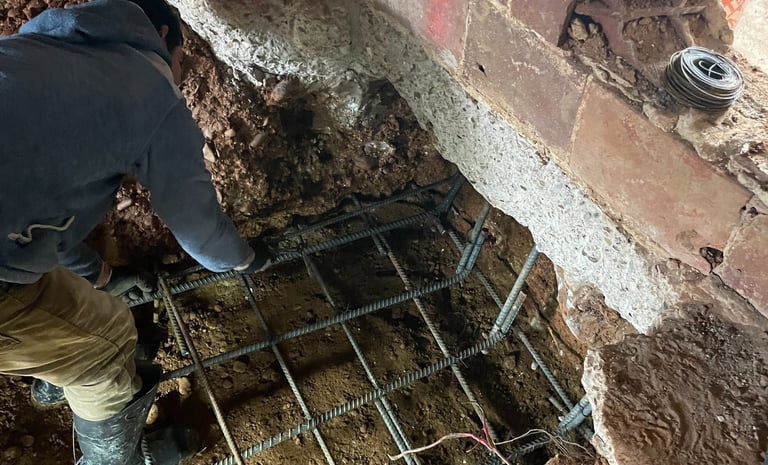

Specialized Equipment for Washington DC Projects
Space constraints define most of our equipment choices. DC lots are narrow. Alleys are tight. Neighbors are close. We've invested in machinery that can actually access your foundation without demolishing half your property.
Low-vibration equipment matters when you're working on occupied buildings. Nobody wants their dishes rattling while we're strengthening their foundation. We've learned which tools work effectively without causing disruption.
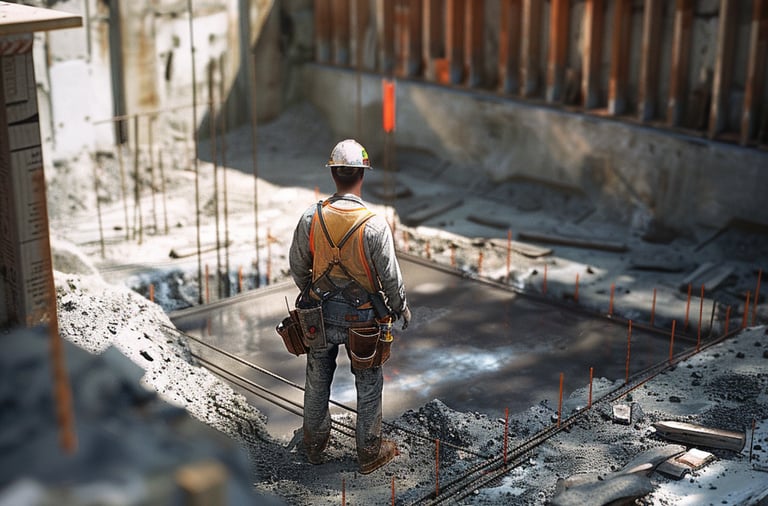

Why Choose BBCDC for Underpinning in Washington DC
Experience counts for a lot in this business. We've worked on some pretty significant historical sites around the city. Can't name them all due to client confidentiality, but the projects taught us how to handle complex foundation work while respecting architectural integrity.
Our credentials aren't just paper. EPA LEAD-BASED PAINT RENOVATION certification (NAT-F254732-1) becomes essential when working on pre-1978 buildings. That covers most of DC's housing stock. We maintain DC License #410521000429 and hold CBE and LBE certifications that demonstrate our local commitment.
Building science expertise sets us apart from contractors who rely only on traditional methods. We understand soil mechanics, moisture management, and structural engineering principles. This knowledge helps us design underpinning solutions that perform reliably in DC's challenging environment.
Our DC Area Credentials and Certifications
Beyond basic licensing, we maintain certifications that directly impact project quality. Lead-safe work practices aren't optional when disturbing older foundations. Our EPA certification ensures compliance with federal requirements.
DC Certified Business Enterprise status reflects our understanding of local procedures and procurement requirements. It also means we maintain good standing with district regulatory agencies - helpful when permit issues arise.
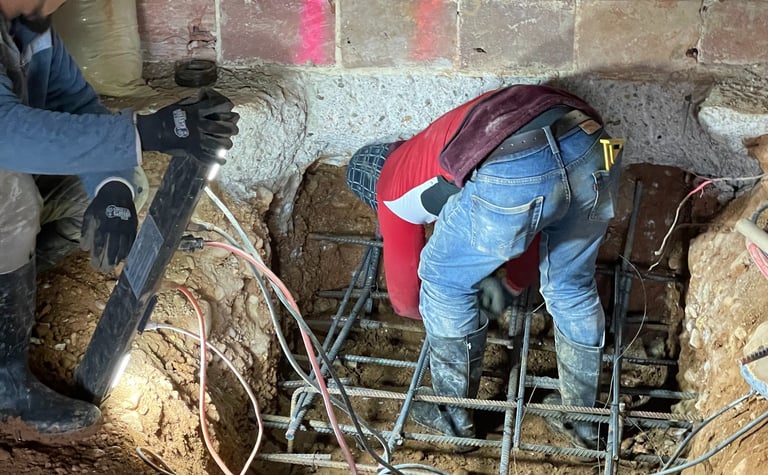

Underpinning Service Areas Throughout the Washington Metropolitan Area
We cover the entire district plus close-in suburbs. Georgetown to Anacostia, Capitol Hill to Tenleytown. Each neighborhood presents different challenges based on soil conditions, building ages, and architectural styles.
Our office at 3418 13th St NW puts us in the center of the action. Quick response times matter when foundation problems develop. We also serve Arlington and Alexandria regularly, plus selective projects in nearby Maryland locations.
Historic districts get special attention because preservation requirements affect how we approach underpinning work. But honestly, most of DC has some level of historic significance that influences construction decisions.
Historic District Underpinning Expertise
Working within preservation guidelines requires patience and creativity. The Historic Preservation Office wants to maintain architectural character while allowing necessary structural improvements. We've learned to present proposals that satisfy both requirements.
Documentation becomes crucial in historic districts. Every decision gets reviewed, sometimes multiple times. Our experience with these processes helps projects move forward without unnecessary delays.
Our DC Area Credentials and Certifications
Your project starts with assessment - both structural and soil conditions. We need to understand what's actually happening with your foundation before designing solutions. Sometimes the obvious problem isn't the real problem.
Permit coordination takes time in DC. Various agencies review underpinning projects, especially in historic areas. We handle that paperwork while you focus on other things. Our relationships with inspectors and plan reviewers help streamline approvals.
Construction gets phased to minimize disruption. Can't underpin an entire foundation simultaneously - your building needs support throughout the process. We work section by section, maintaining structural integrity while making improvements.
Planning and Design Phase
Soil testing reveals what we're working with below ground. DC conditions vary significantly even within single blocks. What works on one project might not suit the property next door.
Structural engineering consultation ensures our underpinning approach matches your building's specific load requirements. Generic solutions rarely perform well long-term.
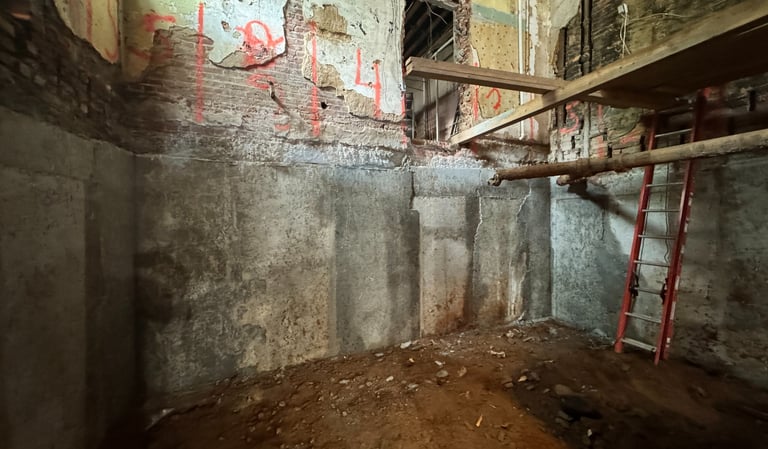

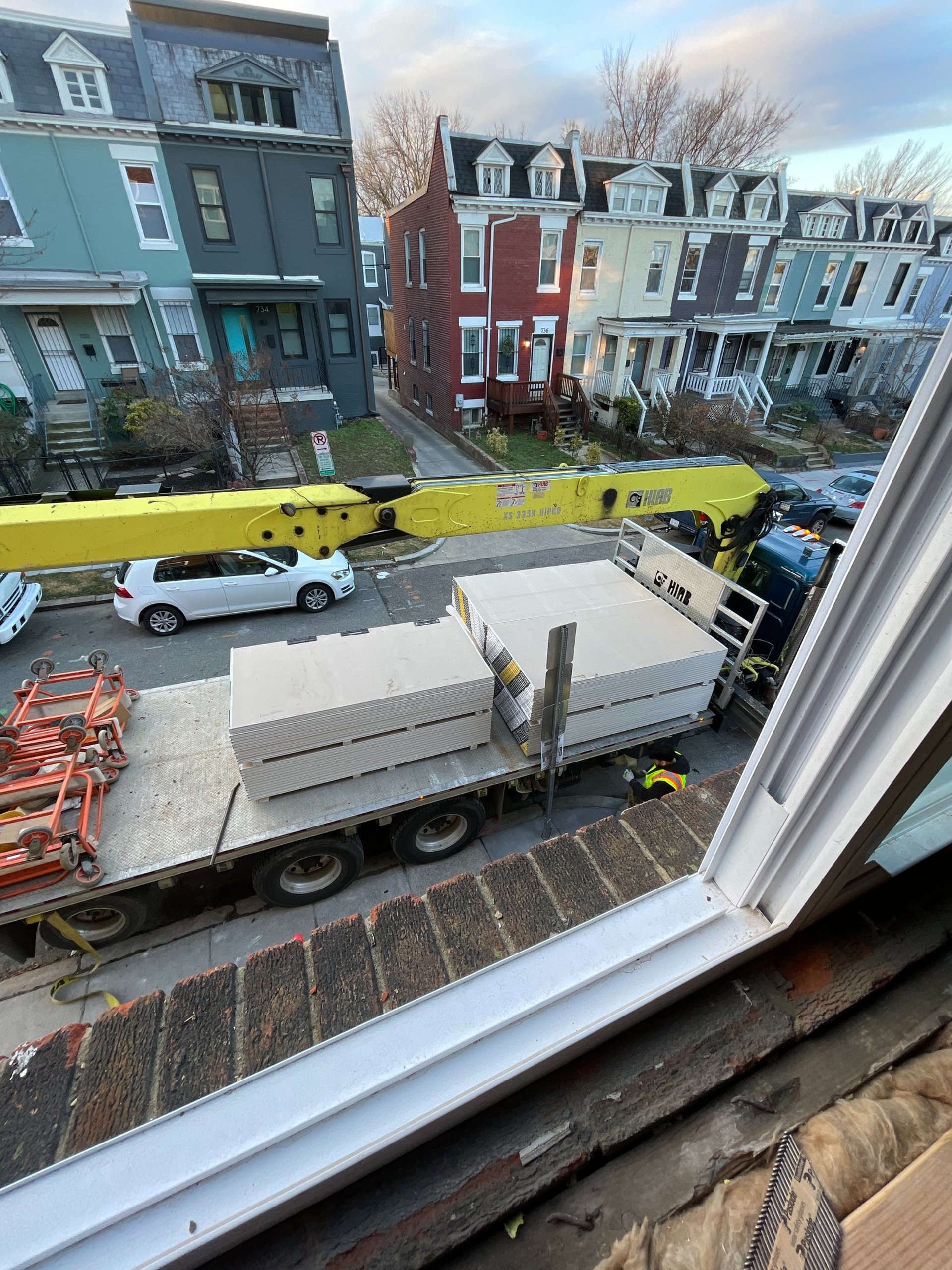
Client Experience and Project Excellence
Foundation work creates anxiety for most property owners. Major structural changes feel risky, especially when you're living or working in the building during construction. We get that.
Clear communication helps reduce stress. Regular updates, realistic timelines, and honest discussions about challenges that arise. Problems happen on construction projects. How we handle them makes the difference.
Dust control, noise management, and work area organization matter when you're occupying the space during construction. We've developed procedures that minimize disruption without compromising work quality.
Quality control includes material testing and regular inspections throughout construction. Building science principles guide our work, but practical experience tells us what actually performs well in DC conditions.
Getting Started with Your Washington DC Underpinning Project
Ready to discuss your foundation concerns? Call us at (202) 350-0344 to schedule an initial consultation. We'll assess your situation and explain options without pressure or high-pressure sales tactics.
You can also visit our office at 3418 13th St NW, Washington, DC 20010. We maintain flexible scheduling for property assessments and emergency response capabilities for urgent foundation issues.
At BBCDC Construction, we understand that underpinning represents a significant investment in your property's future. Your foundation deserves expertise that comes from years of experience navigating DC's unique construction challenges.
EPA LEAD-BASED PAINT RENOVATION, REPAIR, AND PAINTING ACTIVITIES #NAT-F254732-1
DISADVANTAGED BUSINESS ENTERPRISE (DBE)
DC CERTIFIED BUSINESS ENTERPRISE (CBE)
CERTIFICATION NUMBER: LSD34313092025
SMALL BUSINESS ENTERPRISE (SBE)
LOCAL BUSINESS ENTERPRISE (LBE)
DC LICENSE # 410521000429
CAGE CODE 8MRD4
MD MHIC 6178021
SERVING: Adams Morgan, DC, American University Park, DC, Bellevue, DC, Berkeley, DC, Bethesda, MD, Bloomingdale, DC, Brightwood, DC, Brightwood Park, DC, Brookland, DC, Burleith, DC, Buzzard Point, DC, Capitol Hill, DC, Cathedral Heights, DC, Chevy Chase, DC, Chinatown, DC, Cleveland Park, DC, Columbia Heights, DC, Crestwood, DC, Dupont Circle, DC, Eastern Market, DC, Eckington, DC, Edgewood, DC, Foggy Bottom, DC, Forest Hills, DC, Fort Totten, DC, Foxhall, DC, Friendship Heights, DC, Georgetown, DC, Glover Park, DC, H Street Corridor, DC, Hill East, DC, Ivy City, DC, Kalorama, DC, Kent, DC, Kingman Park, DC, LeDroit Park, DC, Logan Circle, DC, Manor Park, DC, McLean Gardens, DC, Michigan Park, DC, Mount Pleasant, DC, Navy Yard, DC, NoMa, DC, Observatory Circle, DC, Palisades, DC, Penn Quarter, DC, Petworth, DC, Potomac, MD, Rockville, MD, Shaw, DC, Shepherd Park, DC, Silver Spring, MD, Sixteenth Street Heights, DC, Southwest Waterfront, DC, Spring Valley, DC, Takoma, DC, Takoma Park, MD, Tenleytown, DC, The Wharf, DC, Trinidad, DC, U Street, DC, Union Market, DC, Van Ness, DC, Wesley Heights, DC, West End, DC, Woodley Park, DC, Woodridge, DC
HOURS
Monday: 8:00 AM – 8:00 PM
Tuesday: 8:00 AM – 8:00 PM
Wednesday: 8:00 AM – 8:00 PM
Thursday: 8:00 AM – 8:00 PM
Friday: 8:00 AM – 8:00 PM
Saturday: 8:00 AM – 8:00 PM
Sunday: Closed
COPYRIGHT BRANDS BUILD CULTURE DC, LLC. 2025
ALL RIGHTS RESERVED.
